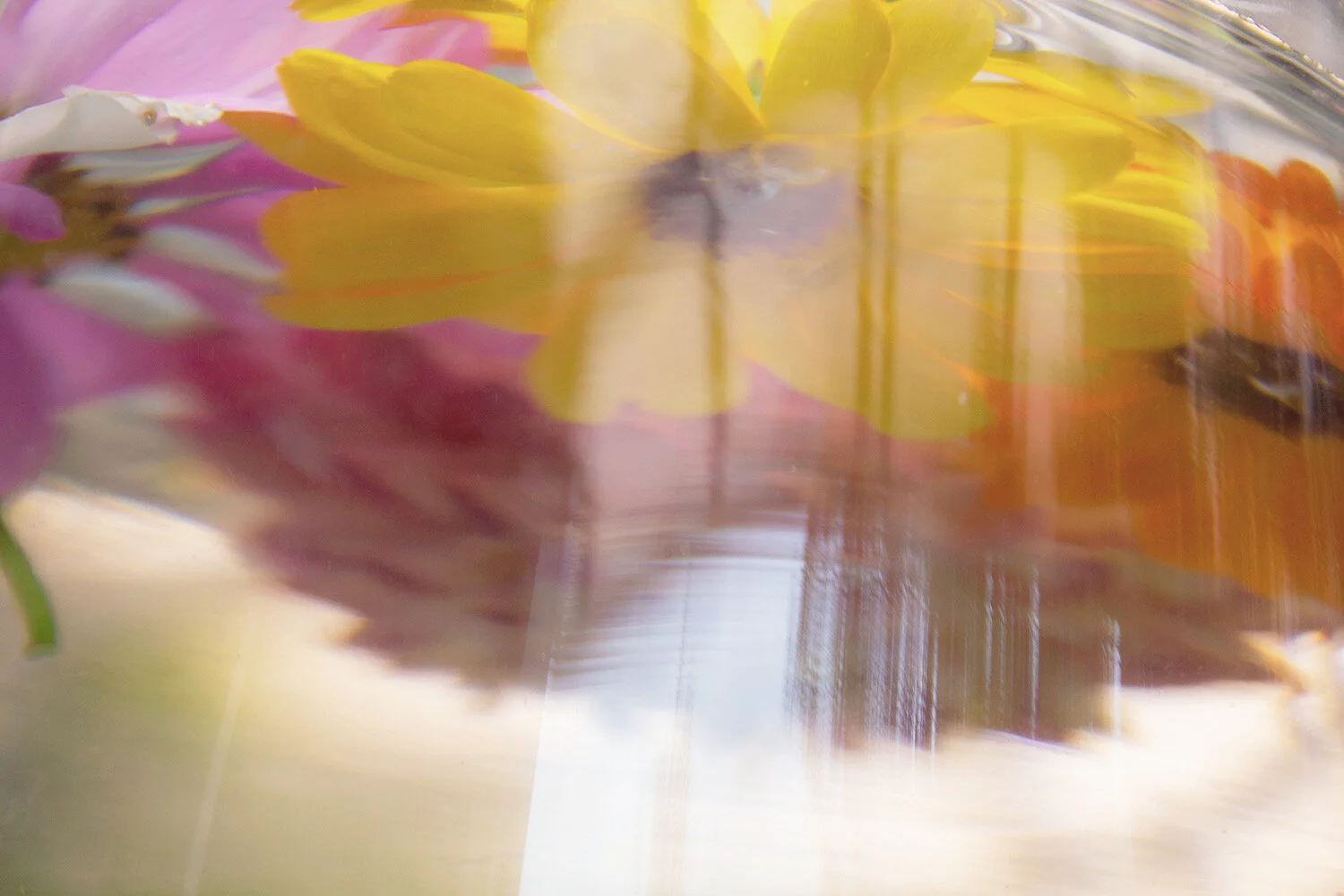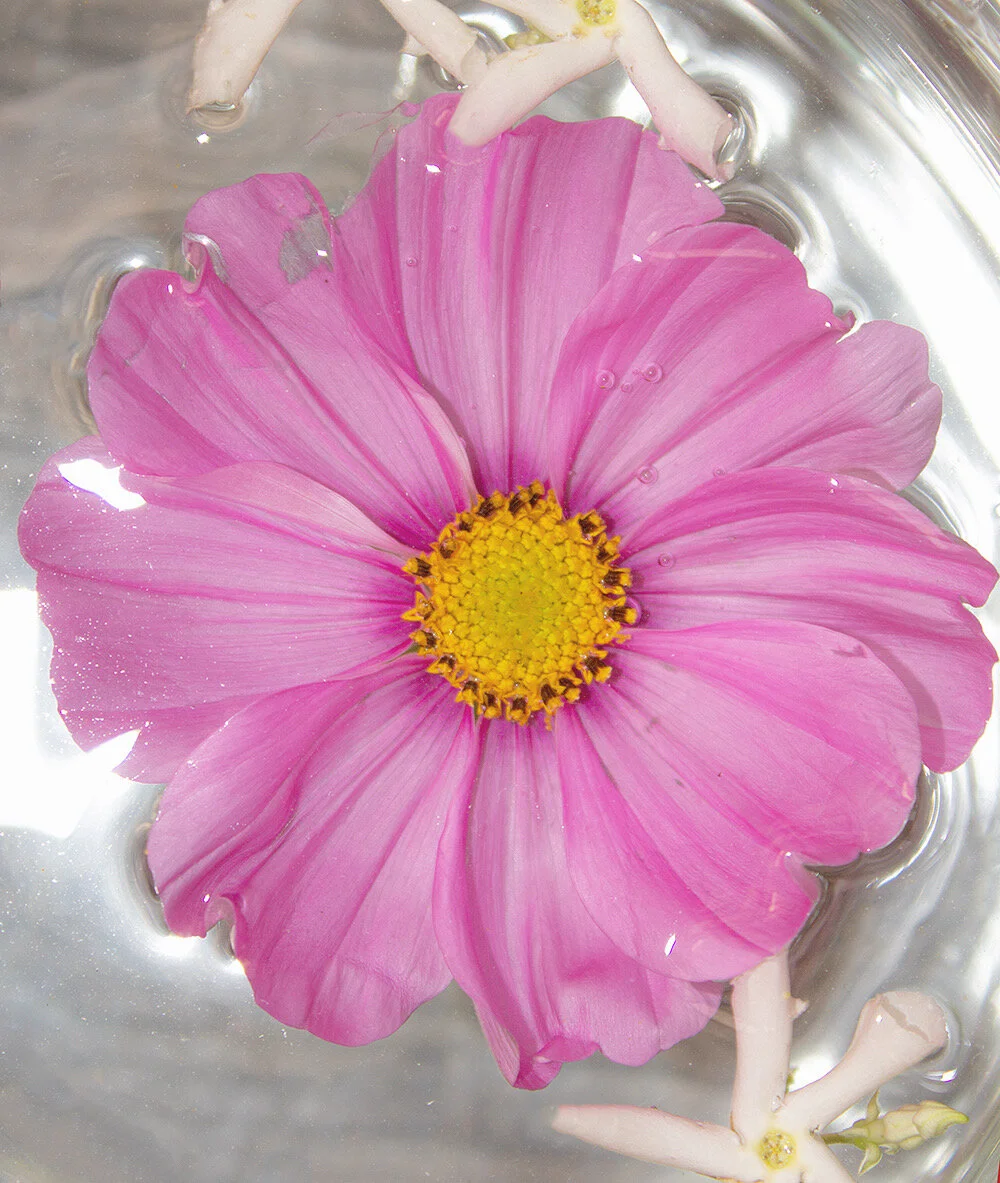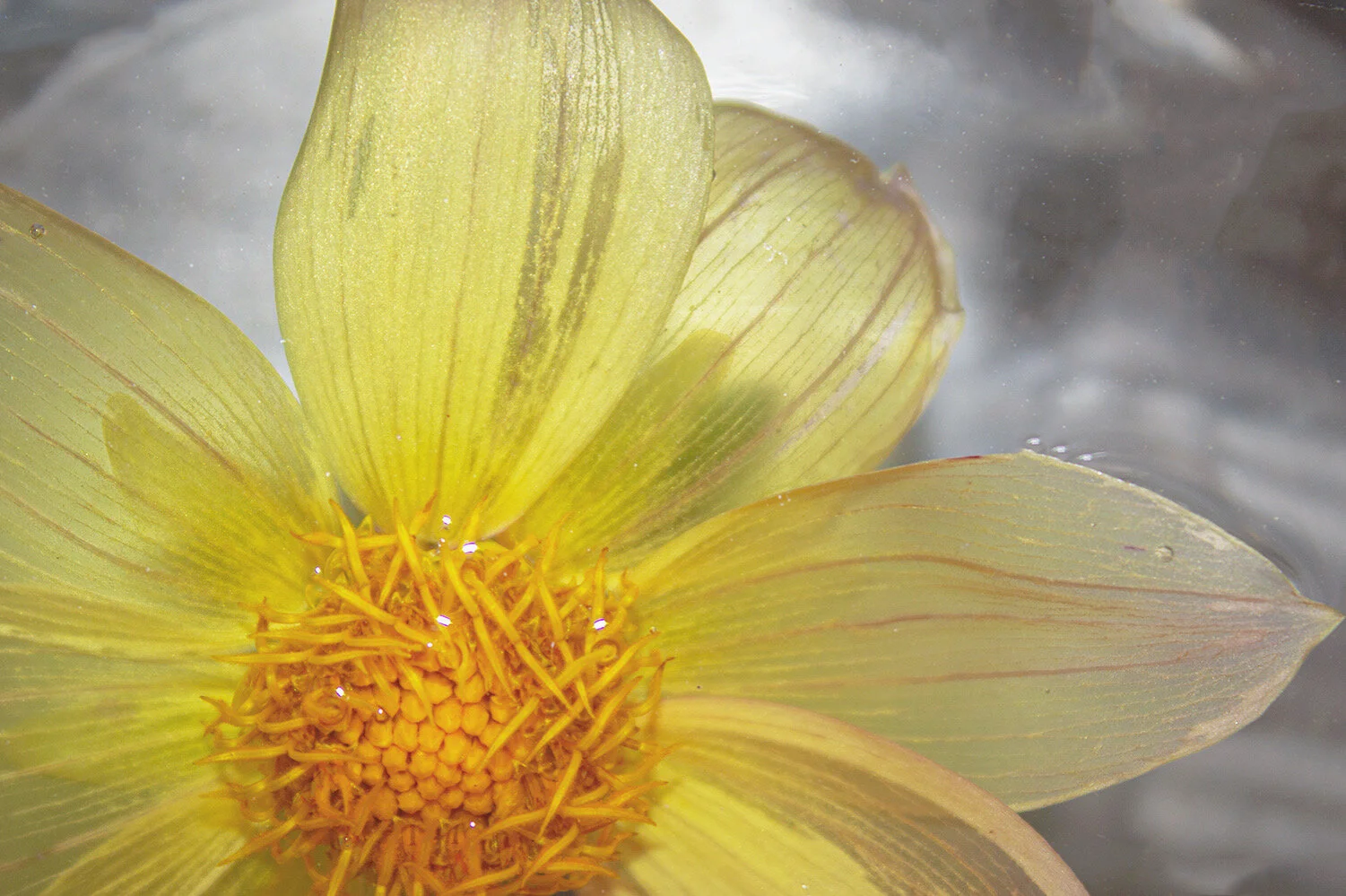Demystifying Floral Essences
Plant medicine based systems of healing such as homeopathy and herbalism have been used for centuries. A powerful addition to these methods is a system called flower essences. As a fundamental part of ecological life on the planet, flowers can be harnessed to benefit both the physical body and mind. As we’ve seen throughout different articles on Welluvia, each flower has its own array of benefits that can be utilised in flower essences. Today I’ll outline a bit more about flower essences, the three main systems (Bach, Californian, Bush) as well a more in-depth look at the flowers and their benefits within the Bach Flower Remedy system.
What are flower essences?
Using sunlight to capture the bioelectric field of flowers within the water, flower essences instil the healing properties of a variety of different flowers to promote better wellbeing. Each flower has a different benefit and can be tailored to a client’s preference or concern.
Bach Flower Remedies:
My introduction to flower essences came from the Bach Flower Remedies system. I was in a consultation with my mother at her clinic and her results showed I could benefit from the healing properties of a few different Bach Flower Remedies. I had a look through the different variants and my mother made me a concoction that I was instructed to take 3 drops twice a day for three weeks. I loved taking them and found their proposed benefits worked for me.
‘True healing involves treating the very base of the cause of suffering. Therefore no effort directed to the body alone can do more than superficially repair damage. Treat people for their emotional unhappiness, allow them to be happy, and they will become well”
- Dr Edward Bach
First prepared in England in the 1930s by Dr Edward Bach, a healer who recognised the soul-spiritual dimensions of healing. Trained in conventional medicine, Bach knew that the physical symptoms he treated were intimately related to the emotional and mental conditions of his patients. Bach left his practice to develop a new healing modality derived from the fresh blossoms of plants, developing a set of 38 flower remedies which could help the soul overcome fear, despair and depression. Californian Flower Remedies are based on the same principles that Bach instilled, but feature another larger variety of flowers.
Australian Bush flowers:
The Bush Essences are the system of healing that was developed and researched by Naturopath and fifth generation Australian herbalist Ian White. Through his research of the rare remedial qualities of Australian native plants, he pioneered Australian Bush Flower Essences to meet the growing need for remedies that address issues of the 21st century. It is important to note that Australia has the world’s oldest and highest number of flowering plants.
Bach Remedies list
There is a huge array of flowers utilised in contemporary flower essence remedies. The Californian Flower system and the Australian Bush Flower systems have hundreds of flowers listed in their inventory. Today we’ll focus on each of the original 38 flower remedies by Dr Edward Bach.
Agrimony
For cheerful, jovial people who hide their troubled behind their humour, not wishing to burden others with them. They will go to great lengths to avoid arguments or disharmony, and may use alcohol or drugs to stimulate themselves and help cope cheerfully with pain or anxiety. They are oversensitive to ideas and influences.
Aspen
For those with vague fears of the unknown, a sense of foreboding, nightmares or terror of approaching misfortune for no apparent reason. One is often afraid to talk about these fears with other people.
Beech
For perfectionists, who need to see more good in all around them and who are easily critical and intolerant. They tend to overlook the positive aspects of other people, over-reacting to minor details and lacking understanding of individual idiosyncrasies.
Centaury
For kind people who find it hard to say ‘no’, being over-anxious to please and serve others and tending to work harder on other people’s behalf than on their own particular calling or interests. Such people are easily exploited.
Cerato
For uncertainty and those who doubt their ability to make decisions and judgments, and who constantly seek advice from others and are often being misguided.
Cherry Plum
For those fearful of being overstrained or losing control of their body, mind or emotions, such as uncontrollable anger and other impulses which may cause them to harm themselves or others, including suicidal tendencies.
Chestnut Bud
For those who do not learn from observation and experience and constantly repeat the same experiences and make the same mistakes, before their lesson is learnt.
Chicory
For those who are over-concerned for the needs of others - friends, relatives or children - continually correcting them and wanting them to conform with their ideas. They are possessive, demanding and can be self-pitying.
Clematis
For those with insufficient interest in present circumstances; for people who have a tendency to daydream, think about the future, and do not live fully in the present. They lack concentration, making little effort in everyday life, and live in hope of happier times ahead.
Crab Apple
For those who feel they need cleansing. For people who feel self-disgust or contamination, feelings of shame or low self-esteem, concentrating obsessively on one shameful aspect of themselves and ignoring others. For detoxification of the body, and cleansing of wounds, whether emotional or physical, internal or external.
Elm
For diligent people, who are doing good work, often helping others, and following a vocation, but who feel overburdened or over-extended at times, which causes depression and despondency.
Gentian
For those who are easily discouraged, in whom small setbacks can cause depression, despondency and self-doubt, even though generally they do well.
Gorse
For those suffering from great hopelessness, feelings of despair and futility. They give up believing that any more can be done for them. If pushed or to please others, they may try various treatments with little hope of improvement.
Heather
For lonely people who need to discuss their affairs with other people and so seek the company of anybody who will listen. They become very unhappy if they are left alone for any length of time.
Holly
For people who are overcome by negative emotions such as anger, jealousy, envy or suspicion. They suffer much inside, often when there is no real cause.
Honeysuckle
For those who live in the past, and do not expect happiness as they have enjoyed before. Such people are nostalgic, homesick, and prone to reminiscing.
Hornbeam
For those who feel they need strengthening and help physically or mentally to bear the burden life has placed on them. For ‘Monday morning’ feeling, not feeling up to facing the coming day, and the pressures of everyday life.
Impatiens
For those who think and act quickly, and so want everything done without delay. They are often happier working or being alone so that they can go at their owns peed, for they are often impatient or irritated by others who do things more slowly.
Larch
For despondent and despairing people who do not consider themselves as good or as capable as those around them. Even though they may be perfectly able, they lack confidence and expect failure, so that often they do not try hard enough to succeed. This becomes a self-fulfilling prophecy.
Mimulus
For those fearful of very known things, such as illness, death, old age, pain, darkness or being alone. Also for people who are very shy and afraid of others. These fears are kept inside and are not spoken of to others.
Mustard
For those experiencing periods of sadness, gloom or even despair, which descend for no apparent reason, making it impossible to feel happiness or joy.
Oak
For those who never give up, despite setbacks, misfortunes or illness. They keep trying one thing after another, determined to reach their goal. Never losing hope, they fight on.
Olive
Those who have suffered much mentally or physically and are so exhausted and weary that they feel they have no more strength to make any effort. Daily life is hard work for them, without pleasure
Pine
For those who blame themselves. Even when successful they think they could have done better, and are never satisfied with the decisions they make. Would this remedy help me to stop blaming myself for everything?
Red Chestnut
For those who find it difficult not to be anxious for other people. Often they have ceased to worry about themselves, but for those around them.
Rock Rose
The remedy of emergency for cases where there even appears no hope. In accident serious or sudden illness, or when the patient is very frightened or terrified, or if the conditions is serious enough to cause great fear to those around. If the patient is not conscious the lips may be moistened with the remedy.
Rock Water
Those who are very strict in their way of living; they deny themselves many of the joys and pleasures of life because they consider it might interfere with their work. They are hard masters to themselves. They wish to be well and strong and active, and will do anything which they believe will keep them so. They hope to be examples which will appeal to others who may then follow their ideas and be better as a result
Scleranthus
Those who suffer much from being unable to decide between two things, the first one seeming more right than the other. They are usually quiet people, and bear their difficulty alone, as they are not inclined to discuss it with others.
Star of Bethlehem
For those in great distress under conditions which for a time produce great unhappiness. The shock of serious news, the loss of someone dear, the fright following an accident, and such like. For those who for a time refuse to be consoled, this remedy brings comfort.
Sweet Chestnut
For those moments which happen to some people when the anguish is so great as to seem to be unbearable. When the mind or body feels as if it had borne to the uttermost limit of its endurance, and that now it must give way. When it seems there is nothing but destruction and annihilation left to face.
Vervain
Those with fixed principles and ideas, which they are confident are right, and which they very rarely change. They have a great wish to convert all around them to their own views of life. They are strong of will and have much courage when they are convinced of those things that they wish to teach. In illness, they struggle on long after many would have given up their duties.
Vine
Very capable people, certain of their own ability, confident of success. Being so assured, they think that it would be for the benefit of others if they could be persuaded to do things as they themselves do, or as they are certain is right. Even in illness, they will direct their attendants. They may be of great value in an emergency.
Walnut
For those who have definite ideals and ambitions in life and are fulfilling them, but on rare occasions are tempted to be led away from their own ideas, aims and work by the enthusiasm convictions or strong opinions of others. The remedy gives constancy and protection from outside influences.
Water Violet
For those who in health or illness like to be alone. Very quiet people, who move about without noise, they are aloof, leave people alone and go their own way. Often clever and talented. Their peace and calmness is a blessing to those around them.
White Chestnut
For those who cannot prevent thoughts, ideas, arguments which they do not desire from entering their minds. Usually at such times when the interest of the moment is not strong enough to keep the mind full. Thoughts which worry and still remain, or if for a time thrown out, will return. They seem to circle round and round and cause mental torture. The presence of such unpleasant thoughts drives out peace and interferes with being able to think only of the work or pleasure of the day.
Wild Oat
Those who have ambitions to do something of prominence in life, who wish to have much experience, and to enjoy all that which is possible for them, to take life to the full. Their difficulty is to determine what occupation to follow; as although their ambitions are strong, they have no calling which appeals to them above all others. This may cause delay and dissatisfaction.
Wild Rose
Those who without apparently sufficient reason become resigned to all that happens, and just glide through life, take it as it is, without any effort to improve things and find some joy. They have surrendered to the struggle of life without complaint.
Willow
For those who have suffered adversity or misfortune and find these difficult to accept, without complaint or resentment, as they judge life much by the success which it brings. They feel that they have not deserved so great a trial that it was unjust, and they become embittered. They often take less interest and are less active in those things of life which they had previously enjoyed.
I find the topic of flower essences so fascinating, and hopefully, with a bit more information you will too.
With wellness,
Aleksandar
Photography by Aleksandar Zarić for Welluvia




